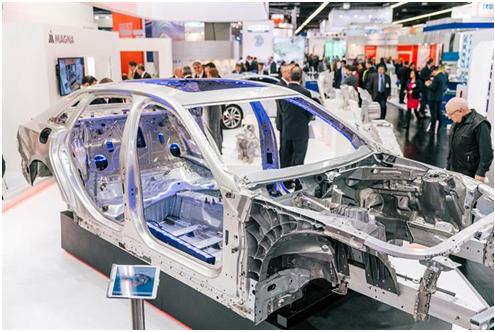Introduction:
Magnesium is a lightweight metal that is known for its exceptional strength-to-weight ratio. It is the eighth most abundant element in the Earth’s crust and is widely used in various industries due to its excellent properties. In this article, we will delve into the properties and applications of cast magnesium.
Properties of Cast Magnesium:
1. Lightweight: One of the most significant advantages of cast magnesium is its low density, making it ideal for applications where weight reduction is crucial. Compared to aluminum, magnesium is 36% lighter, and compared to steel, it is 78% lighter.
2. High Strength: Despite its lightweight nature, cast magnesium possesses impressive strength, making it suitable for structural applications. Its strength-to-weight ratio is higher than that of aluminum alloys, reinforcing its usefulness in industries such as aerospace and automotive.
3. Excellent Machinability: Cast magnesium has good machinability properties, making it easy to manufacture into various shapes and sizes. It can be readily cast, forged, extruded, and machined, allowing for intricate designs and complex components.
4. Good Thermal and Electrical Conductivity: Magnesium exhibits excellent thermal and electrical conductivity properties, making it suitable for applications in heat transfer and electrical components. It dissipates heat efficiently, reducing the risk of overheating, and allows for the rapid transfer of electrical energy.
5. Corrosion Resistance: Magnesium has good corrosion resistance, especially when compared to other metals such as steel. However, it is more susceptible to corrosion than aluminum. To enhance its corrosion resistance, various surface treatments and coatings can be applied.
Applications of Cast Magnesium:
1. Automotive Industry: Cast magnesium is extensively used in the automotive industry due to its lightweight nature and high strength. It helps in reducing the overall weight of vehicles, improving fuel efficiency, and reducing carbon emissions. It is commonly used in engine components, transmission cases, steering wheels, and structural parts.
2. Aerospace Industry: Magnesium’s high strength-to-weight ratio makes it a preferred choice for aerospace applications. It is used in aircraft components such as landing gear, brackets, engine casings, and structural parts. Its lightweight nature helps in minimizing fuel consumption and enhancing aircraft performance.
3. Electronic Industry: Magnesium’s excellent thermal and electrical conductivity properties find application in the electronic industry. It is used in the production of electronic housings, heat sinks, and connectors, ensuring efficient heat dissipation and effective electrical transmission.

4. Sports Equipment: Magnesium’s lightweight and high strength properties make it suitable for the manufacturing of sports equipment. It is commonly used in tennis rackets, golf club heads, and bicycle frames, offering athletes enhanced performance and maneuverability.
5. Medical Industry: Magnesium’s biocompatibility and lightweight nature make it an attractive material for medical applications. It is used in orthopedic implants, dental devices, and surgical instruments, where its low weight and compatibility with the human body are advantageous.
Conclusion:
Cast magnesium possesses exceptional properties that make it an attractive material for various industries. Its lightweight nature, high strength, excellent machinability, good thermal and electrical conductivity, and corrosion resistance contribute to its versatility and wide range of applications. As technology advances and new techniques for processing magnesium are developed, its potential for even more diverse applications continues to grow.
-

- Mittatilaustyönä valmistetut UAV-osat, joissa on CNC-työstö ja pintakäsittely
-

- Magnesiumtiksomovausosat UAV-kotelo
-

- Erittäin tarkkoja magnesiumtiksomuovauskomponentteja kannettavan tietokoneen kotelon kansi A
-

- Magnesiumseosvalimoosien polkupyörän rungon CNC-työstö ja pintakäsittely
-

- Magnesium alloy Thixomolding parts for oxygen suction machine housing
-

- OEM painevaletut osat ja komponentit

 0086-750-5616188
0086-750-5616188 +86 13392089688
+86 13392089688 sales@zhongmei-tech.com
sales@zhongmei-tech.com







